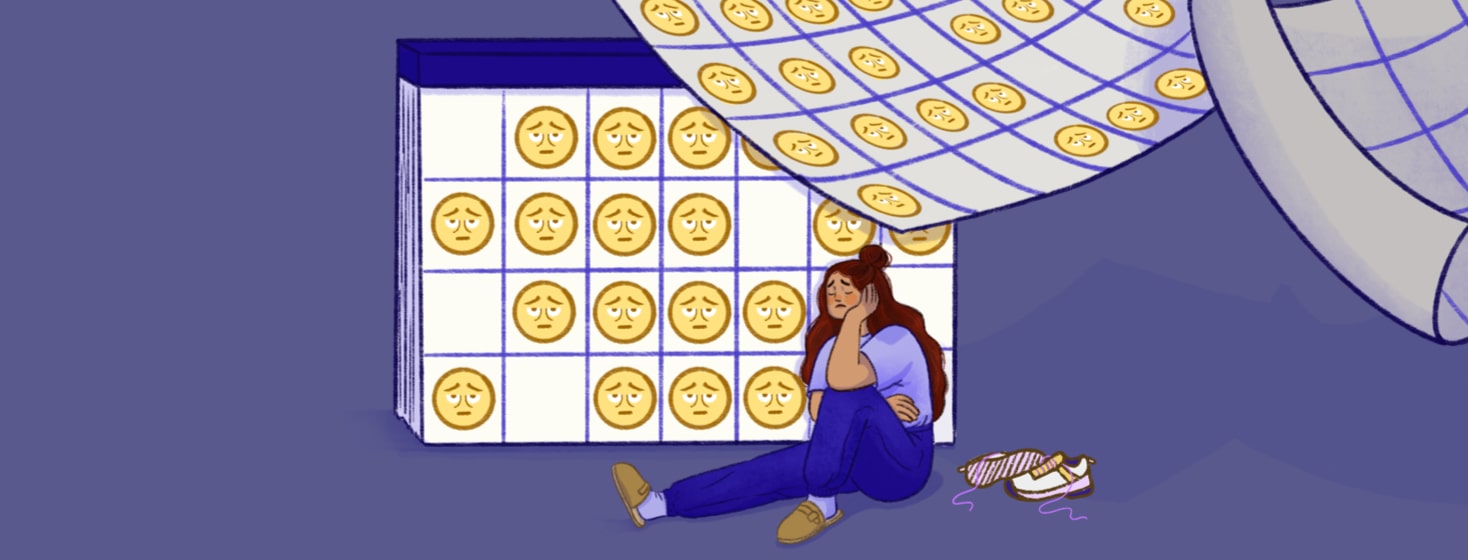Coping With Depression Fatigue
Depression, which is sometimes called major depressive disorder (MDD) or clinical depression, is a common mental health issue. Symptoms of depression can look and feel different for everyone. For example, people may feel sad, anxious, guilty, or irritable. Another common symptom of depression is fatigue or extreme tiredness.1,2
More than just feeling "tired"
Everyone feels tired sometimes or has off days where they feel unmotivated. This is normal. In depression, symptoms last for longer than an off day. Depression fatigue can also feel more intense than just being tired. About 90 percent of people with depression report feeling fatigued.1,2
Fatigue can often feel like a deep sense of physical and mental exhaustion. It might feel like a heavy, unrelenting tiredness. Fatigue can impact your life by making it hard to get out of bed or perform daily tasks. People may also feel slowed down or unable to move quickly due to fatigue.1,2
Just like depression symptoms, fatigue may feel different for different people. Fatigue may cause:2
- Low energy and endurance
- Tired or heavy limbs
- Feeling sleepy during the day
- Lower motivation or interest
- Difficulty focusing your mind
This or That
Are you currently dealing with fatigue?
How does depression cause fatigue?
The relationship between depression and fatigue is complex. Depression can cause fatigue on its own. Plus, other side effects of depression can contribute to you feeling tired. Even some antidepressants can cause fatigue as a side effect.2,3
Depression can often impact our sleep. For some people, it may be sleeping too much, while for others it can be difficulty sleeping. Sleeping too little or too much can contribute to feelings of fatigue. Additionally, depression can cause people to be less active. Not getting enough physical exercise can also cause people to be less energetic.2,3
Not everyone with depression will feel tired. If you have other persistent symptoms of depression but do not feel fatigued, do not hesitate to contact your doctor. Depression symptoms are different for everyone.1,2
Tips and treatment options
Fatigue can be a challenging symptom to treat. Selective serotonin reuptake inhibitors (SSRIs) are one of the most common types of antidepressants. But while SSRIs can treat other symptoms, they do not always help with fatigue. Some people may want to try antidepressants besides SSRIs to manage fatigue. Or you may need to take more than one drug to treat fatigue and other depression symptoms.2
There is some depression research on drugs that fight tiredness, such as modafinil. These are also called wakefulness-promoting drugs that are commonly used for treating sleep disorders. They work by helping you stay awake and alert. Several studies have shown that modafinil was able to help treat fatigue in people with depression.2
Beyond medication, some lifestyle changes may help you feel less tired. Things that may help include:1,3
- Try to get 30 minutes of activity per day. Even if it is something simple like walking or stretching, it can help.
- Aim to eat healthy, regular meals.
- Avoid alcohol, non-prescription drugs, and nicotine.
- Try to stick to a regular bedtime and wake-up time.
Fatigue can sometimes feel like an overwhelming symptom. But with time and treatment, you can feel better. If you feel persistent signs of depression, like fatigue, talk to your doctor.1
